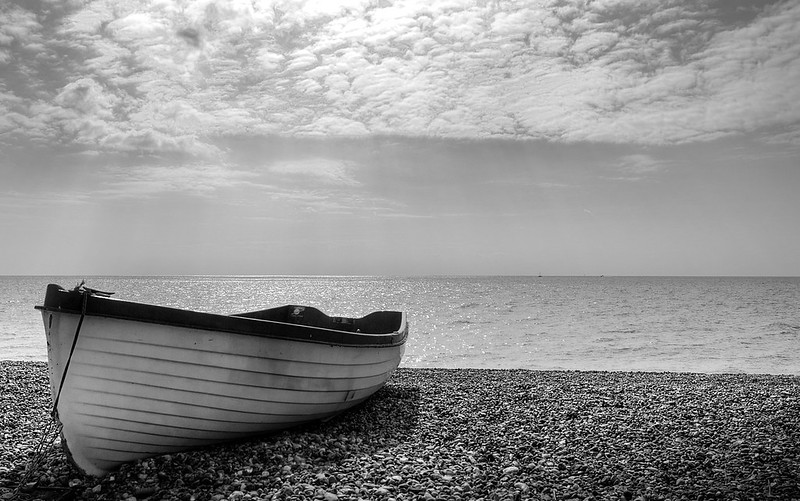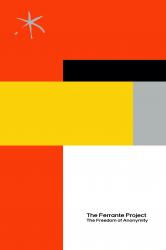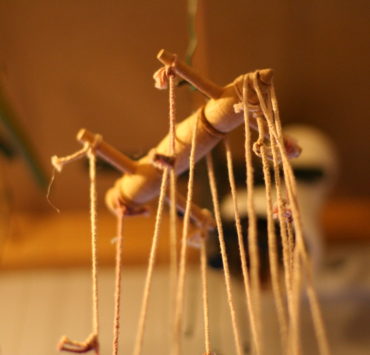
Innocent stood in the middle of the trailer; the children crowded together in the back. The four of them were cramped, it was the smallest trailer on the carnival’s lot, but it couldn’t be helped. At least it would be easier to stay warm. As it was, the bar of lye soap froze to Innocent’s hand now and again. He couldn’t get the stove to stay lit. He talked to the children as he worked, just nonsense, just any old thing to fill the silence.
“Manager said we going down to Texas. We supposed to be on our way down there right now, ‘Crawfish come November,’ Manager said. And he went on about what a crawfish look like. Like none of us ever saw nothing but these Oklahoma plains. I been down Texas. I seen plenty of water . . .” He paused and shook his head at a memory he didn’t want to have.
“You remember your ma?” Innocent asked, turning to May. She wriggled beneath the blanket Innocent had just laid over her.
“I do. I remember your ma.”
May’s mouth opened in its enormous and incredible O; her single long tooth caught the light of the gas lantern and shined a milky amber. Pretty. Like an icicle hanging from the eave of a cave. Innocent thought he might like to have it—afterward. He fished his good-luck marble from his pocket and put it in May’s hand. Her mouth widened till it was as big as a hippo’s mouth: May’s Incredible Maw was how they billed her.
“That’s yours, May,” he said. “This way we each have something of the other’s to keep.”
She smiled at him with her little bitty squirrel eyes and he squeezed her hand as he moved away from her to check the stove.
Innocent had brought in plenty of wood, but the half-frozen twigs hissed when he put a flame to them and wouldn’t catch. He had a pail of water he’d brought in for the children’s baths—a film of ice glassed the surface of the water and shattered each time Innocent dipped the rag and soap. He had already bathed three of them, there was only Honey left.
“I’m sorry,” he said as he unbuttoned her dress. The water was so cold Innocent lost sensation in his fingers, the nails had purpled. He rubbed the stiffening rag between the folds of fat on Honey’s thigh. The swells and lumps and rolls of her shook under his ministrations, the expanse of her belly was ridged with goose bumps. Honey didn’t scream or squirm, she only cried big round tears that welled over the slits of her eyelids and ran down her cheeks and quivering triple chin.
“Cold, Inny,” she said. Because this cold was cruel and stinging and because she couldn’t imagine why he was rubbing her with this rag that hurt her—he had never hurt any of them.
“Soon be over,” Innocent said. “But y’all got to be clean. Everything clean.”
The rest of them, those that could talk—that is to say all but May—joined in.
“Inny, Inny. Fire please.” The oldest of them was only ten, and they were simple, all of them simple in the head, which made it worse to see them suffer.
“I know,” Innocent said. “I know. But y’all can’t make a fuss or you’ll wake up the whole camp.” He peered through the hole he’d made in the newspaper covering the trailer’s single window. It was true what Ava said, how they set up the living lot the same way everywhere they stopped, with their trailers positioned in straight intersecting lines like a street grid in a city. Ava had even drawn a map and named the imaginary streets. She had wanted to put up house numbers too, hung on shingles in each trailer’s doorway, but Manager had said that was too much, and he gave one of his speeches about carnival life and how it was their blessing that they weren’t yolked to any towns or street names or five-and-dimes, or to the people in them. We are the light, Manager said—can’t cover it up with regular people‒type shit.
“Fire!” Honey said.
Innocent rushed to the stove. The weight of their situation suddenly impressed itself upon him—the biting cold, the lateness of the hour, the children’s exhaustion—they had worked that night, a little while anyway, before the cold came down, and there were so few people on the midway that Manager shut the show down for the night. The children had not had their supper. Joli was crabbed in the corner, tottering on a chair far too small for him. He had shot up to six foot five in the last month and he was only nine years old. His growing pains were worse in the cold.
“Babies!” Innocent said, addressing all four of the children. Joli, beginning to cry, pressed the palms of his hands against his eye sockets—his fingers stuck straight up and were so wide and long and crooked that he looked as though he’d grown antlers.
“Babies!” Innocent said again. His hands shook on the wooden matches. One by one they broke as he tried to light them. The matchbox emptied until there was only one. The sparking head splintered off from the stick and fell, as the others had, into the black belly of the stove.
“Babies,” he said again. His voice was shrill. Behind him, Innocent’s children waited in silence. Their eight eyes were on him. He glanced back at them and in that instant he was one of them—that helpless, that cast away. How had he become the one who was supposed to take care of them when he was just as pitiful as they were? He’d give anything to have Ava back. All of this mess and trouble they were in and it was up to him to fix it—a nobody from nowhere. He couldn’t do it. He didn’t have the courage.
Even now, out there in the dark rows of the living lot, out on the midway, his friends, his colleagues and comrades, people he had loved, were plotting against him. He could hear their treachery skittering around in their heads like big black beetles. They wanted shut of him. They wanted to demote him to shoveling horseshit. And his babies, Innocent’s babies they wanted to chuck by the roadside like sick dogs. A month ago they’d been clapping Innocent on the back and calling him brother. How far we fell, Innocent thought.
No telling now what he might do. There wasn’t any defense against them, Innocent’s babies couldn’t run or fight. They didn’t have the slightest inkling of the plot against them. How they trusted Innocent, despite the shivering and hunger and exhaustion; they trusted that he would find another book of matches and make a fire and then he’d tuck blankets around them and they’d all go to sleep and wake to porridge and bacon as they had all of their other mornings. They trusted him to make it so because he loved them. With him they were safe. Even on nights when townies crowded into the sideshow tents on the midway, when they jeered and shoved each other for a better look at whichever of Innocent’s babies were onstage. When they shouted and called them aberrations and freaks. When they looked at May and said she wasn’t anything God had made. When they threw peanuts, and sticks from which they’d sucked off the cotton candy. When they tossed, as they had one time, a rock that hit Honey on the forehead and she’d had to stay onstage under the hot lights, blinking against the blood trickling into her eyes. Oh, but, when the show was over, there was Innocent. Always. He hefted her into her wheelbarrow and maneuvered her offstage and down the midway to his trailer where he cleaned the wound with a warm cloth and rubbed it with a salve that took the sting out. He propped her head in his lap and whispered in her ear, Brave and sweet and wasn’t nobody like her on all the earth. He whispered these things only to her. He rested his chin in her palm so she could run her fingers over his prickly beard, and if she sometimes pinched or slapped him—because sometimes there wasn’t anything else to do in a world like this—Inny didn’t hit her back or even chastise. He loved her, Honey knew, and no one else ever had.
Innocent kneeled on the floor next to the stove. “Babies!” His voice was only a whisper, hushed with futility. And he was sorry, so very sorry. He rose to his haunches and spread his arms wide. The children thought it was an embrace and were comforted.
“Y’all ain’t never seen the ocean,” he said.
The place where Innocent was born was menaced by a violent and unpredictable sea. For a string of days it would be passive, friendly even, and the people of Innocent’s town ventured out in little boats or if the weather was warm they’d hike up their pants and skirts and wade in to their knees. Then, without any warning, or so it seemed to Innocent as a boy, the sea turned mean and charged up onto the shore with murder in its heart. It battered the people until there wasn’t anything left but wood splinters where houses should have been—and the weeping women and stone-faced men staring out to the horizon. It was at the onset of one of these storms that Innocent, stepping through the pine brake that ringed the beach, found his father standing at the edge of the shore, the waves breaking around him. His arms were spread wide, as Innocent’s arms were spread now as he kneeled in front of his babies. He wasn’t more than six or seven at the time, and he thought that perhaps his father was telling the sea that he loved it, so that it would be kind to Innocent and his parents and their flimsy house rocking into the wind. In the next instant, his father leaned into the oncoming waves, arms still spread wide, and was carried out into the depths.
All his life, Innocent had judged his father a weak man and a coward. But now, looking out at the children, he understood that his father had simply surrendered. Death and the water were bound to win sooner or later. Innocent sighed, got to his feet, and did what needed doing.
“Supper! Supper!” Honey said. Innocent had taken a tin of potato mash from his satchel and was spooning it into Honey’s mouth. The food was cold and there was a bitter aftertaste, but she liked the bits of chopped bacon. He fed them all in turn, everybody’s favorite, with the Barbies mixed in.
Image Credits: Paul Nuttall
The Ferrante Project: A collective of 16 women writers of color experimenting with freedom, anti-fame, and anonymity. Contributors include: Cathy Linh Che, Angie Cruz, Natalie Díaz, Ru Freeman, Sarah Gambito Cristina García, Jamey Hatley, Dawn Lundy Martin, Ayana Mathis, Vi khi nao, Aimee Nezhukumatathil, Deborah Paredez, Khadijah Queen, Emily Raboteau, Paisley Rekdal, and Lyrae Van Clief- Stefanon.







